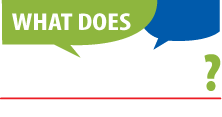Phrases starting with the letter: A B C D E F G H I J K L M N O P Q R S T U V W X Y Z
Definition of: number
(num'bər) noun
1. One of a series of symbols or words used in classifying or arranging quantities; a numeral: Nine is a number. When a definite number is mentioned, the sign meaning number (#) is often used, followed by a numeral: R.F.D. #2: abbr. no., or No., from Latin numero, by number. See below for principal kinds of number.
2.. A collection of units or individuals, whether large or small; an indefinite aggregation: often in the plural: a number of facts; large numbers of people.
3. plural The science of numerals; arithmetic.
4. The character or quality of being numerous; Reliance is placed more on spirit than on number.
5. One of a numbered series, as of a periodical: the May number of “The Atlantic”; one of the parts of a literary, artistic, or musical work issued in parts.
6. One of the divisions or movements of a piece of music or of a musical or dancing program.
7. One of a numbered group.
8. Often plural Poetic measure; rhythm; hence, verse or verses.
9. Gram. The form of inflection of a noun, pronoun, adjective, or verb, that indicates whether one thing or more is meant. English has the singular and the plural number. Greek and Sanskrit have in addition a dual number. See DUAL, PLURAL, SINGULAR.
10. Colloq. An article of merchandise numbered in a catalog; hence, any article, although unnumbered: This is our most popular number.
—by the numbers Mil. A preparatory drill command to indicate that each subsequent movement is to be carried out step by step as its number is ordered.
—to get (or have) someone's number Colloq. To have insight into a person's motives, character, etc.
—v.t.
1. To determine the total number of; count; reckon.
2. To assign a number to; designate by a number or numbers.
3. To include as one of a collection or group.
4. To amount to; total: We number fifty men.
5. To set or limit the number of: Your days are numbered.
—v.i.
6. To make a count; total.
7. To be included, as in a group. [<F nombre <L numerus]
—num'ber·er noun
—abstract number
Any number considered without reference to any particular object: distinguished from concrete number.
—algebraic number
Any number which is the solution of an algebraic equation having integer coefficients.
—amicable number
Either of two numbers, as 220 and 284, one of which is the sum of all the divisors of the other except itself.
—cardinal number
Any number that directly expresses the number of digits under consideration as 1, 2, 3 … 8, etc.
—composite number
Any integer exactly divisible by one or more integers other than itself or 1: opposed to prime number.
—compound number
A number containing more than one unit or denomination, as feet and inches.
—concrete number
A number applied to particular objects, as, four men; ten dollars; distinguished from abstract number.
—defective number
A number which is greater than the sum of all its divisors except itself.
—denominate number
A number expressing units of a specified kind, as, pounds, bushels, miles, etc.
—irrational number
A number which cannot be expressed as an integer or the quotient of integers, as √2 √5, π, etc.
—mixed number
A number, as 3 1/2, 5 3/4, which is the sum of an integer and a fraction.
—ordinal number
A number that shows the order of a unit in a given series, as, first, second, third, etc.
—perfect number
A number, as 6, 28, 496, which is equal to the sum of all its aliquots except itself. Compare amicable number.
—polygonal number
The sum of an arithmetical progression that has the property of corresponding numerically to the number of points required to form a group of successively larger, regular polygons in accordance with a certain rule, as, 3, 6, 10, 15 …
—prime number
A number divisible without remainder by no whole number except itself and unity: opposed to composite number.
—Pythagorean numbers
Any set of three integers, as 3, 4, 5, satisfying the Pythagorean theorem.
—rational number
A number which can be expressed as an integer or as a quotient of integers.
—real number
Any rational or irrational number that does not contain an even root of a negative number.
—sphenic number
A number product of three unequal prime factors.
—square number
A number, as 1, 4, 9, 16, which is the square of some integer.
—transcendental number
A number which is not an algebraic number, as π.
—triangular number
A polygonal number which, apart from 1, is generated by making an array of dots in the form of an equilateral triangle, as 3, 6, 10, 15.

Comment about this word, ask questions, or add new information about this topic: